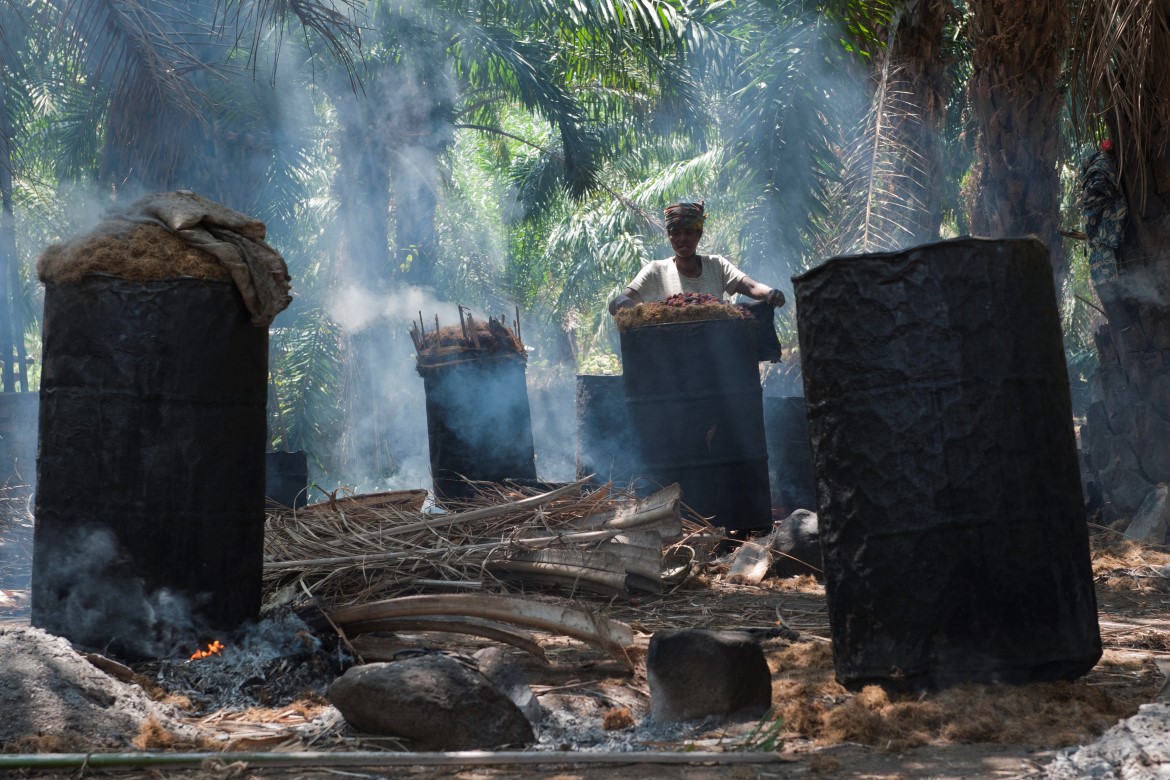
Limiting demand for vegetable oil reduces deforestation
Organization
European Federation for Transport and Environment (T&E)The European Union has put a cap of 7% on the amount of crop-based biofuels used by each EU member state.
The purpose of the project was to end deforestation and peatland conversion for palm oil, cutting palm oil related emissions by approximately five gigatons CO2 equivalents per decade.
Why did Norway decide to support this project?
Norad decided to support the project as it recognized that focus on the demand-side of the biofuels supply chain may have a potential high impact on deforestation rates in supply-side countries. At the same time, it focused on improved forest governance and adherence to human rights in bio-fuels producing developing countries. The project was therefore considered as relevant to the objectives of the Norwegian International Climate and Forest Initiative (NICFI). It was acknowledged that the political risk was high, but if the project succeeded, it could lead to significant large-scale results.
The expected outcomes of the project were:
Outcome 1: Market transformation to deforestation free supply chains
Outcome 2: Deforestation-free EU and US biofuels policies
Results
Norad assesses that overall, the outcomes have partially been achieved. Because progress towards plan and targets are not systematically analyzed, the degree of achievement compared to plan is difficult to assess.
The target of reductions in carbon emissions was adjusted during the project, due to new scientific estimates of global emissions from tropical deforestation. New estimates indicated that palm-oil driven emissions (excluding soil/peat emissions) by 2014 had been reduced by more than half of the baseline of the average from 2000-2011. This is considered a significant positive progress, to which the project likely has contributed.
Achievement of Outcome 1: Achievements under this outcome varied between different target groups. Related to consumer good companies and trader companies, targets were overachieved. 25 consumer goods companies pledged to eliminate deforestation and human rights abuses from their palm oil supply chains (3-4 was the target).
Project partners Union of Concerned Scientists and Climate Advisers were instrumental in influencing this major shift through analysis, campaigns and advocacy efforts towards relevant companies. According to the report, Climate Advisers was instrumental in the development of the New York Declaration on Forests at the UN Climate Summit in September 2014.
While the project plan also envisioned implementation of company commitments, this seems too early to have been verified at project-end.
Regarding financial institutions, the project document stated the ambition a target of at least one major financial institution having made a deforestation-free commitment on target traders. Although advocacy efforts were made, no such pledge is reported.
Palm-producing country policy makers was an indirect target group. The project consortium partner Environmental Investigation Agency (EIA) did a number of corporate research and investigations in Peru, Colombia, Central America and the Congo Basin. Thorough analysis and reports were produced, which with time and continued efforts may eventually influence government policy decision making and company transparency.
However, effects to the extent described in the project document do not seem fully achieved. In some cases, EIA strengthened local civil society partners in their research, investigation and advocacy. EIA also served as a bridge between local civil society and the international palm oil community.
Achievement of Outcome 2: This outcome seems fully achieved at EU level. EU adopted in 2015 a 7% limit on the amount of crop-based biofuels that can be counted by each EU members state to reach the 10% target of biofuels coverage of its energy requirement. EU biofuels policies also recognized effects on emissions by indirect land use change.
A study commissioned by the European Commission estimates that the 7% cap would lead to greenhouse gas savings of up to 541 Mt CO2 equivalents. T&E describes in concrete terms how it has been a leading actor in campaigns to influence those changes.
In the US, results at policy level were less evident. However, T&E’s coalition partner Union of Concerned Scientists made valuable contributions by sharing technical analysis to policy makers about the lifecycle impact of biodiesel on greenhouse gas emissions.
Lessons learned
T&E highlights in the report both positive and challenging lessons learned. One positive lesson was the more rapid pace than expected of the system-wide change among major palm oil dependent companies.
Questions remain on how to monitor company progress towards their ambitious commitments, and how to hold corporate actors accountable if they do not comply. At the palm oil producing country level, many governments do not yet have in place adequate legal frameworks to govern capital inflows and plantation expansion.
Related to EU policy processes, T&E experienced the importance of seeking alignment with like-minded entities in order to more effectively influence the decision making process.
Disclaimer
The result descriptions are based on the information provided by the organisations. Their presentations and conclusions do not necessarily reflect the views of Norad. Norad has not verified all results reported.
